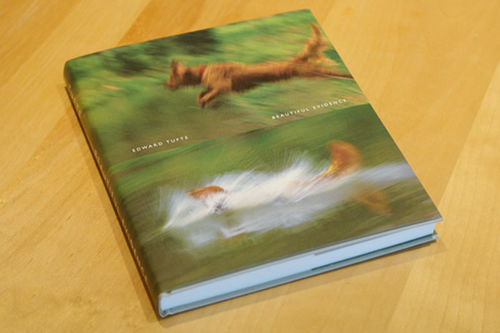Meet Savannah Post – Statistics Summer Scholarship recipient
This summer, we have a number of fantastic students who received a Department of Statistics scholarship to work on fascinating projects with our staff members. We’ll be profiling them here on Stats Chat and we’d love to hear your feedback on their projects!
Savannah is working with Maxine Pfannkuch and Stephanie Budgett on a research project entitled ‘Statistics Education Research – the bootstrap method’.
Savannah explains:
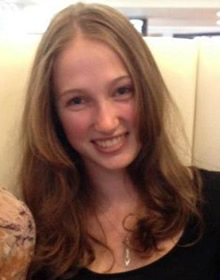 “I’m working on a collaborative research project looking at statistics education in New Zealand at the secondary and tertiary level. This summer the research team has been expanded to include two research assistants, myself and Kim Eccles (who is also featured on this website). I’m very grateful for the opportunity to work in such an amazing environment and am looking forward to acquiring new skills in research and data analysis over the summer.
“I’m working on a collaborative research project looking at statistics education in New Zealand at the secondary and tertiary level. This summer the research team has been expanded to include two research assistants, myself and Kim Eccles (who is also featured on this website). I’m very grateful for the opportunity to work in such an amazing environment and am looking forward to acquiring new skills in research and data analysis over the summer.
“Overall, the project focuses on exploring the ways in which statistics students respond to the concepts taught. We are especially interested in their understanding of two new computer-intensive methods for learning about statistical inference. Over the summer, we will be analysing data obtained from pre- and post-testing as well as interviews, using the computer software package nVivo. From this, we hope to gain some kind of insight into the statistical understanding students develop as a result of the teaching they receive. In particular, we would like to identify which of the “big ideas” are well understood by students and which common misconceptions exist, so that we can improve teaching for future generations of budding statisticians.”
More about Savannah:
“I was originally interested in this project because of my own background in statistics. At school, I developed an early (misguided!) disgust for statistics and would never have taken the subject any further, had Stage 1 statistics not been a compulsory course for my degree. Having since discovered a completely unexpected passion for the subject, I’m excited to be part of a project which I hope will make statistics more accessible and enjoyable for a much wider range of students.
“I have just completed my second year of a conjoint BSc/LLB degree. Aside from my statistics major, I am also completing a second major in chemistry for the BSc component of my degree. I really enjoy the investigative, problem-solving aspect of science and would like to go on to Honours in statistics after I’ve finished my time as an undergraduate. After that, the way forward is a little less clear, but I’m 100% sure that whichever career I end up in, a background in statistics will help me to make more sense of the world around me.
“Outside university, I especially love to sing and am involved with a number of different choirs. I spend one night a week playing social indoor netball, which is a lot of fun – bouncing balls off the walls and down the court takes some time to get used to but makes the game much more interesting! I’m also a member of the Pupuke Rotaract club, which focuses on community service around Auckland. It’s also a great place to socialise with other like-minded people.
“Over the summer, I’m looking forward to doing lots of relaxing: reading, swimming, watching late-night movies, sleeping in and spending lots of time at the beach with family and friends.”
 “Astronomers often take images of the sky, then look for objects such as stars or galaxies in these images. It is of interest to measure the “flux” or total brightness of the objects, which is then used as input to scientific studies. However, this cannot be done accurately because the images are noisy, especially when they are of very faint distant objects such as the first galaxies in the universe.
“Astronomers often take images of the sky, then look for objects such as stars or galaxies in these images. It is of interest to measure the “flux” or total brightness of the objects, which is then used as input to scientific studies. However, this cannot be done accurately because the images are noisy, especially when they are of very faint distant objects such as the first galaxies in the universe.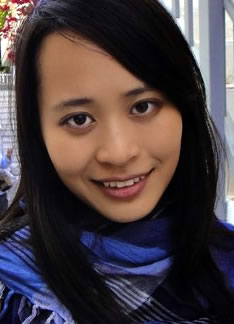 “My summer research with
“My summer research with 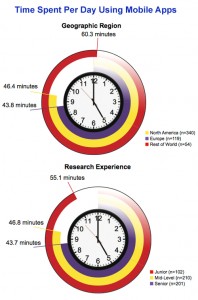
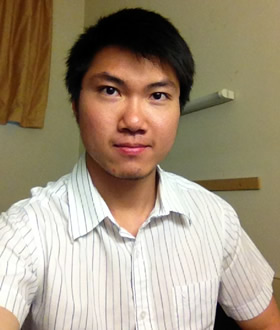 “I’m working on various theoretical aspects (investigation of different types of distribution, implementation of new mathematical-based theories) and practical sides (data cleaning, issues in LaTeX and Sweave).
“I’m working on various theoretical aspects (investigation of different types of distribution, implementation of new mathematical-based theories) and practical sides (data cleaning, issues in LaTeX and Sweave).